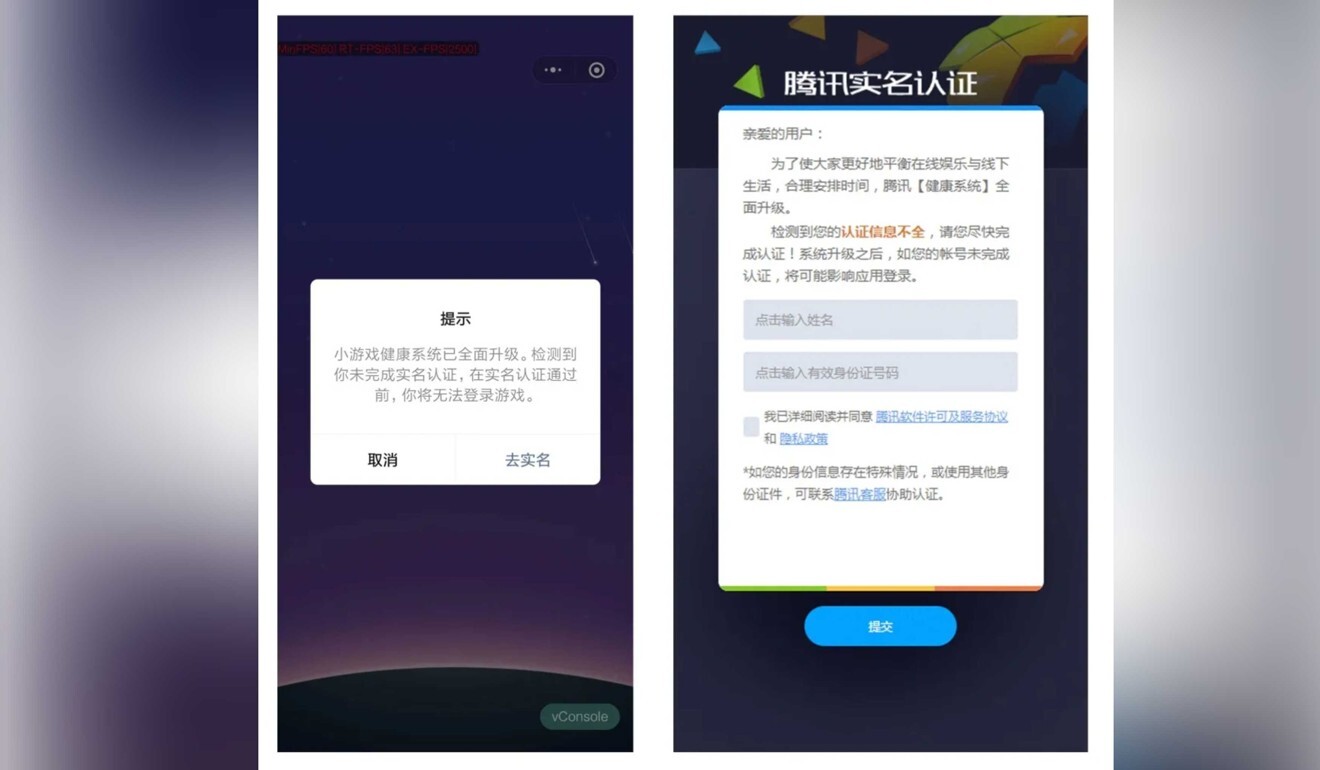
Chinese gaming giant Tencent expands anti-addiction system for minors to WeChat mini games
- Users logging onto mini games in WeChat will now have to verify their real names and identities against police databases
- Minors under the age of 18 will face restrictions on their playing time and in-game expenditure, as well as parental controls
The Shenzhen-based conglomerate has integrated mini games – which run within the ubiquitous WeChat without users having to download them separately – with its gaming “health system”, it announced in a statement posted on WeChat on Tuesday.
As the largest gaming company in China and the world by revenue, Tencent has come under particular scrutiny from Chinese regulators, who have criticised the unhealthy impact of excessive playing of video games on the young and pushed hard for stricter measures to control the issue in recent years.
The issue has been seen by analysts as a headwind for the company, limiting potential profitability and exposing the company to further regulatory scrutiny by Beijing.
Anti-addiction measures in games need to be stricter, says China’s consumer rights watchdog
Those under 18 will not be allowed to log onto games from 10pm to 8am, and will be limited to a maximum playing time of 1.5 hours per day except for public holidays, when they can play for up to three hours a day.
The system will also limit in-game expenditure by minors, barring children under the age of eight from spending money on games and capping spending by those aged between eight and 18 to between 200 and 400 yuan (US$28 to US$56) per month, depending on their age.

In addition, parents can manage the time and money their children can spend on the mini games, and apply for refunds for “irrational expenditure” on games by their kids.
After the introduction of gameplay time limits on Honour of Kings, the amount of time minors spent on the game dropped by 52.3 per cent in a year compared to a peak in 2017, according to Tencent.
As of a statement in December last year, Tencent’s anti-addiction system covered 116 mobile games and 31 PC games, and the company had removed 32 games because they could not be integrated within the system due to technical reasons.

